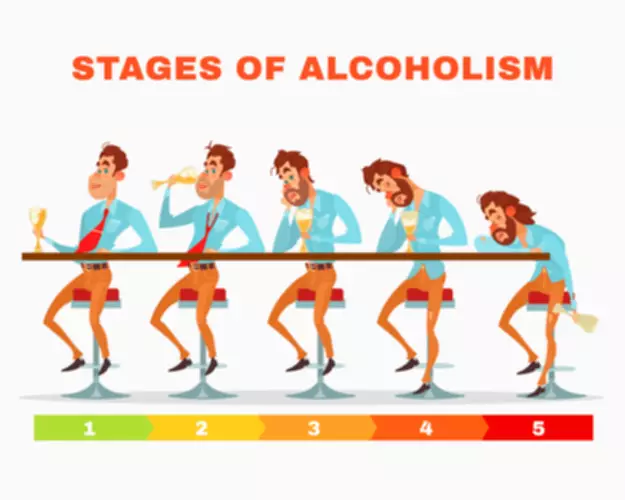
Korsakoff syndrome is a chronic memory disorder caused by severe deficiency of thiamine (vitamin B-1). Korsakoff syndrome is most commonly caused by alcohol misuse, but certain other conditions also can cause the syndrome. Doctors have identified several ways alcohol affects the brain and memory. People who binge drink or drink to excess regularly may experience short-term and long-term memory loss. A vitamin B1 deficiency resulting from excessive alcohol consumption may also cause Wernicke-Korsakoff syndrome, rather than the disorder being a direct result of alcohol misuse. A 2020 study showed that moderate alcohol intake could lower a person’s risk of developing Alzheimer’s disease.
- When nerve activity is inhibited or harmed, short-term memory loss can occur.
- This disorder also involves having to drink more to get the same effect or having withdrawal symptoms when you rapidly decrease or stop drinking.
- As a result, some people may experience long-term memory loss, confusion, and personality changes even with proper care.
- They excluded all participants with an existing diagnosis of dementia, cancer, or cardiovascular disease, and those who died within a year of their second examination.
- Therapy, counselling, and support groups can help people relearn daily skills and manage the emotional and mental challenges of recovery.
How can a person prevent the progression of alcoholic dementia?

However, there is a big difference between low-to-moderate drinking and people who drink in a way that is harmful – those who are binge-drinkers or alcohol-dependent. All we know is that they had alcohol use disorders which meant that their excessive drinking had become harmful and caused a serious health problem. Aluminum salts in antiperspirants dissolve into the skin’s surface and form a temporary barrier within sweat ducts, which stops the flow of sweat to the skin’s surface. No studies have directly examined the link between aluminum-containing antiperspirant use and Alzheimer’s risk. However, a few studies have evaluated the link between antiperspirant use and breast cancer. Studies show that can drinking cause dementia aluminum salts in antiperspirants are poorly absorbed by the body, and the little that is absorbed is flushed out by the kidneys 2223.
Keep This Common Disorder Under Control To Reduce Dementia Risk

These changes can greatly impact your daily life and may make it difficult to perform simple tasks like cooking a meal or paying your bills. Over time, they can also negatively affect your mood, personality, and social skills. Some factors, such as age, can’t be changed, but you can address other factors to reduce your risk. Seniors with dementia often need assistance with everyday activities.
What are the different types of ARBD?
- For now, let’s take a look at what this most recent study does (and doesn’t) tell us about the relationship between artificial sweeteners and dementia risk.
- Most research indicates that moderate drinking has very little negative impact on health and is considered beneficial for cardiac health.
- Its high sugar content and lack of fiber cause blood sugar and insulin spikes, leading to inflammation—one of the key risk factors for Alzheimer’s disease, he explained.
- For instance, a person may have both Alzheimer’s disease and vascular dementia at the same time.
- Your use of this site constitutes your agreement to the Terms & Conditions.
For reference, one unit is considered a half pint of beer or a small glass of wine. Note that alcohol-related dementia is sometimes confused with Wernicke-Korsakoff syndrome. While the two conditions share some similarities, they have different causes. Wernicke-Korkasoff syndrome is caused by a thiamine (Vitamin B1) deficiency, though heavy alcohol use can be an underlying cause of this deficiency. ARD is a type of cognitive impairment that occurs as a result drug addiction treatment of heavy alcohol consumption over a long period.
- For those for whom it’s still appropriate to occasionally relax with a drink, a low-risk level is defined as one-half to one drink per day for women and one to one and a half drinks per day for men.
- However, vitamin B1 treatment rarely improves the loss of memory that takes place once Korsakoff psychosis has developed.
- For a clear diagnosis, the person needs to have these symptoms even when they have stopped drinking and are not suffering from the effects of alcohol withdrawal.
- Furthermore, it is more difficult to accurately diagnose dehydration in older adults.
- You can avoid short-term memory loss by removing alcohol from the equation.

